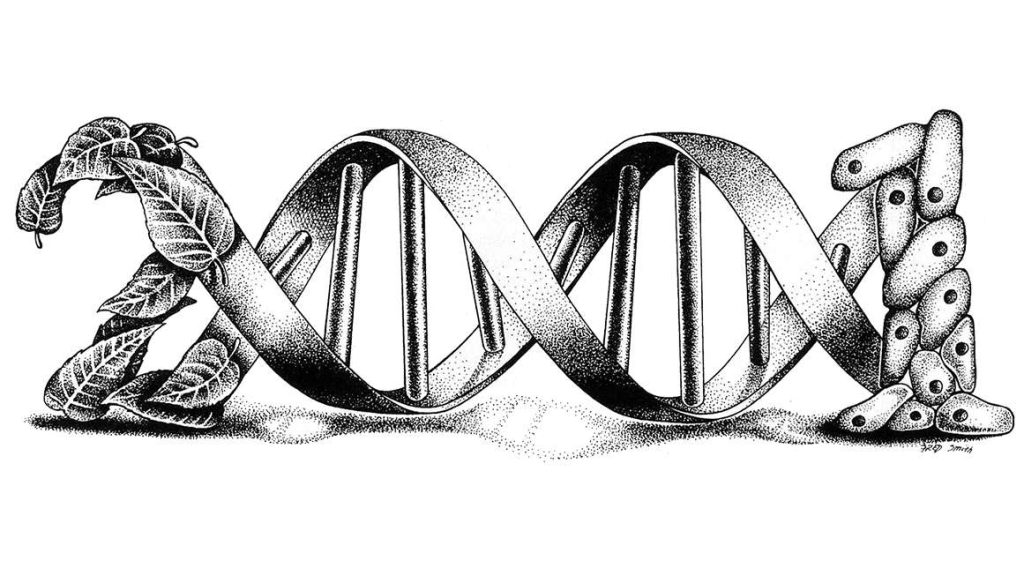9 years ago
April 2015
“While pessimists fret that a new kind of intelligent automation will mean social, economic, and political upheaval, the fact is that the robots are already here and the humans are doing what we have always done in the face of change: anticipating and adapting where we can, muddling through where we can’t, and trying to enjoy the ride.”
Katherine Mangu-Ward
“The Robot Revolution Is Here”
“When I meet experienced artificial intelligence researchers informally, I often ask how much progress they have seen in their specific A.I. subfield in the last 20 years. A typical answer is about 5 to 10 percent of the progress required to achieve human-level A.I., though some say less than 1 percent and a few say that human abilities have already been exceeded. They also typically say they’ve seen no noticeable acceleration over this period. If a more sustained study bears out those informal answers—and if that rate of progress persists—it would take two to four centuries for many A.I. subfields to (on average) reach human-level abilities.”
Robin Hanson
“How To Survive a Robot Uprising”
11 years ago
April 2013
“As software replaces labor we will see greater possibilities for productivity improvements in education. Incentives to invest in such improvements will expand with the size of the market. What will a future ‘course’ look like? One model is a super-textbook: lectures, exercises, quizzes, and grading all available on a tablet. The textbook’s artificial intelligence routines could guide students to lectures and exercises designed specifically to address that student’s deficits, and could call on human intelligence—tutors—on an as-needed basis. (‘Click here to connect with a tutor; $5 for the first five minutes and 50 cents a minute thereafter.’) A textbook of this kind would draw on content experts but also actors, animators, graphic designers, and experts in pedagogy.”
Alex Tabarrok
“Where Higher Education Went Wrong”
28 years ago
December 1996
“Jonathan Swift’s 1696 satire, ‘Battle of the Books,’ describes a passionate war between armies of living books—the Ancients and the Moderns. Exactly 300 years later, equally vigorous yet often simplistic battles rage among today’s Ancients and Moderns: technophobes and technophiles….Everyone recognizes that technological history is complex, but most authors still clutch timelines and linear paths of cause and effect like drowning sailors. In contrast, James Burke’s The Pinball Effect (1996) is a stunningly original and joyously otterine swim throughout the sea of history: Few other books we know so masterfully document the dizzyingly intricate symbioses of inventors and invention….Increasingly, the meaningful question may not be whether technology is good or bad, but instead, whether there are substantive differences between the makers and the made.”
Jonathan Kochmer and Jeff Bezos
“Art and Artifacts”
29 years ago
November 1995
“A century is an enormous span, stretching our foresight to the full. Reflect that H.G. Wells’s The Time Machine appeared only a century ago, in 1895. Biotech, as Aldous Huxley foresaw in Brave New World (1932), can usher in as profound a revolution as industrialization did in the early 19th century. It will parallel vast other themes—the expansion of artificial intelligence, the opening of the inner solar system to economic use, and much, much more.”
Gregory Benford
“Biology: 2001”
33 years ago
Aug/Sept 1991
“Even the ‘high-tech megaprojects’ sponsored by Japan’s Ministry of International Trade and Industry (MITI) have frequently failed. Japanese government efforts to create world-class pharmaceutical, chemical, and aluminum companies have not worked, and even some of MITI’s computer schemes have picked losers. Nine years of subsidies to its Fifth Generation Project have not produced a computer with artificial intelligence, and such heavily subsidized supercomputer firms as Fujitsu are being crushed in the world marketplace by Intel and Cray Research, American firms that beat Japan without burdening the taxpayer.”
Martin Wooster
“Going Global”
51 years ago
March 1973
“Science fiction is almost always humanistic and anti-authoritarian (even in the Soviet Union, where the genre in its post-Stalinist renaissance was a far cry from the leaden preachments of Socialist Realism), and is today one of the few places where the dignity of man is taken seriously. Certainly S.F. can popularize social ideas as such—[Robert] Heinlein’s THE MOON IS A HARSH MISTRESS did this so well for libertarianism that a lot of readers didn’t even notice what the novel did with artificial intelligence and the biological and social ecology of a new environment.”
John Pierce
“Science Fiction in Perspective”
The post Archives: June 2024 appeared first on Reason.com.







